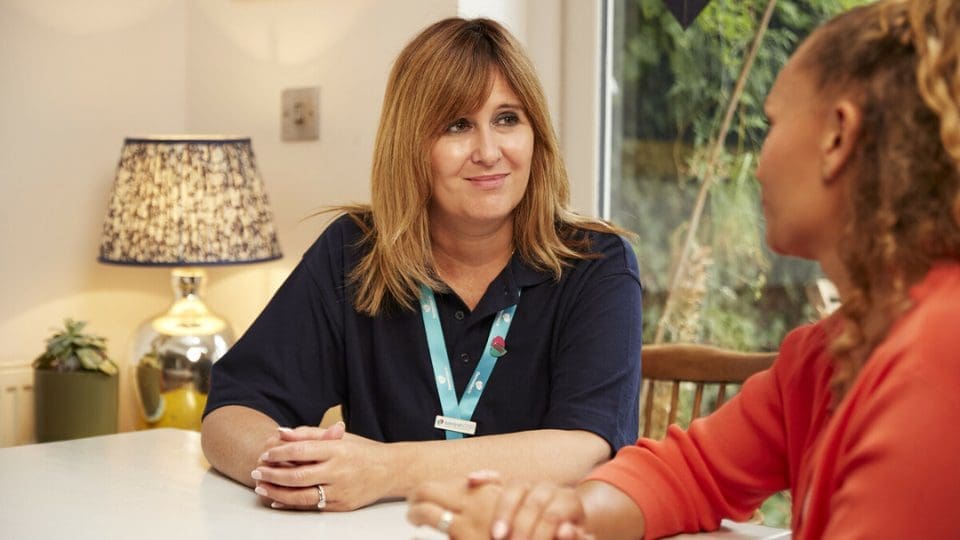How to become an Admiral Nurse
Admiral Nurses work in different care settings and provide specialist dementia support that families need
Admiral Nurse of over 21 years, Jules Knight, on the changing landscape of dementia care
Jules Knight has been an Admiral Nurse since 1999. She has worked tirelessly in the community, in hospital, and on the Admiral Nurse Dementia Helpline. She is now a Consultant Admiral Nurse helping to establish new dementia specialist services around the country. At the 2020 Admiral Nurse Forum, Jules was honoured with a long-service award for her commitment to dementia care. We spoke to her about her career, Admiral Nursing, and her hopes for the future.
The Professional and Practice Development team outdid themselves as it was the first time the Forum was hosted as a virtual event – the day was very special. The theme of resilience provided a real boost for our Admiral Nurses. To receive the award in front of such prestigious colleagues was an incredibly emotional experience for me, it was completely unexpected, and I feel very proud.
I started working as an Admiral Nurse in September 1999, so I have been an Admiral Nurse for just over 21 years. I set up and worked in two community Admiral Nurse services between 2000 and 2013. I then had some time away from Admiral Nursing working as a Young Onset Dementia Specialist Nurse and as a Dementia Clinical Nurse Specialist in an acute hospital. However, during my time away I continued to work on the Admiral Nurse Dementia Helpline. I returned to full–time Admiral Nursing in December 2018, when I started my current role as a Consultant Admiral Nurse.
Dementia UK and Admiral Nursing have shaped my career and supported me to become the nurse I am today, and I’m truly proud of what I do. I work with an amazing team of people within Dementia UK and I also support our wonderful Admiral Nurses, so it feels incredibly special.
I think the most important change that I have seen over the years has been the empowerment of people with dementia in raising awareness and influencing change in all aspects of dementia care. People living with dementia are now powerful campaigners and influencers.
I have seen the role of the Admiral Nurse diversify from the community setting to working within specialist areas such as care homes, acute hospitals and hospices. We have also recruited more nurses with specialisms in areas like young onset and learning disabilities. Supporting people living with dementia and their families is at the heart of what Admiral Nurses do.
The main challenge for Admiral Nurses and carers is the closure of dementia support services. The restrictions mean that carers are isolated at home, often managing incredibly difficult situations without a break from their role. Our Admiral Nurses adapted how they work, and many are using online meetings to re-establish support groups, training and educational sessions, and one–to–one support. However, the level of complexity and distress has been heightened by the ongoing restrictions.
For people living with dementia and their families, I hope that in the coming months we see the positive impact of the vaccine programme, an ease in the restrictions, and with this the restarting of dementia support services.
I have a specialist interest in young onset dementia, and I would like to see the development of more specialist young onset dementia Admiral Nurse posts over the next few years. People living with young onset dementia and their families face unique challenges that can often be very complex, and they often struggle to find appropriate support.
Overall, I would like to see Dementia UK continuing to grow and flourish, so that more people affected by dementia have access to specialist support and advice from an Admiral Nurse in their local area.
Admiral Nurses work in different care settings and provide specialist dementia support that families need

An Admiral Nurse is a dementia specialist nurse that provides life-changing care for families affected by all forms of dementia.